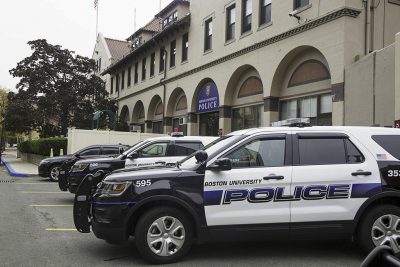
The Boston University Police Department sent an email to students Thursday afternoon warning them about potential fraud after four students have fallen victim to these scams since Sept. 6. The email included details about all four incidents and gave students information about how to better protect themselves.
“We urge all members of our community to be vigilant against theft and fraud. Please take a moment to consider the possibility that a situation may be a scam or a fraud,” BUPD wrote in the email.
Two of the incidents occurred over the phone where the caller pretended to be a Chinese government official and accused the student of being involved in a crime, according to the email. One student wired $150,000 and another wired $25,000 to an overseas location before they contacted BUPD.
In the third incident, a student received a job offer from Walmart through email and was sent a check for $2,800. They were told to “obtain a total of $2,500 in money orders” to send back and keep the remaining $300. After the victim forwarded the orders, they found the check was not accepted.
The fourth incident occurred when a student was contacted by an unknown person who claimed to be from Amazon Services. The student was told if they sent $900, they would receive $1,800 back as payment for being a “secret shopper.” But when the student sent the money, they did not receive anything in return.
BU spokesperson Colin Riley said students can detect fraudulent communication by looking for misspelled words and poorly designed logos.
“The legitimate companies will always tell you that they would never ask for your username or password,” Riley said. “So the most important thing is to verify the source of the calls and messages by separate means of communication.”
The email noted some of the scams seemed to target the Asian community, capitalizing “on a fear of not cooperating with government authorities.”
Steven Macawili, a sophomore in the College of General Studies, said he was surprised so many students were victims of these fraudulent calls.
“I was pretty surprised, I didn’t think that BU students would be the type of people to fall for that kind of stuff. But I stand corrected,” he said.
Macawili said he also receives a lot of scam calls from people impersonating government officials.
“But everyone [is] always calling and asking about your car’s extended warranty and asking for money and saying that the IRS is gonna try to arrest me,” he said.
Riley said the University would never ask students for their personal information over the phone or through email.
“BU will never ask you for personal information like that. That’s why we have the Kerberos password and we have constant monitoring of the security and updating our security systems,” he said.
BUPD advised students to call 617-353-2121, email [email protected] or text the word ‘BU’ to (847411) if they are unsure about a certain communication.























































































































